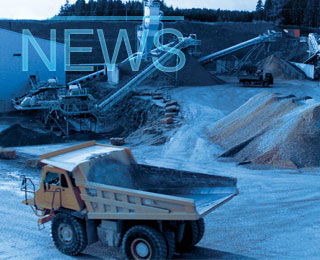According to a research report jointly published on 30 April by lobby group Confederation of Indian Industry and consulting firm AT Kerney, India has a scarcity of gypsum resources, which does not bode well for the cement industry.
Indian cement companies are on the lookout for overseas mines to secure supplies of gypsum. Domestic gypsum supplies are now limited, say industry executives, which is forcing Indian cement makers to look for overseas mine acquisitions or alternatively consider producing synthetic gypsum. Indian cement producers are particularly eyeing reserves located in Thailand, Oman, Iran and other countries in close proximity to India.
In India, gypsum reserves are found in Rajasthan, Gujarat, Jammu and Kashmir, Himachal Pradesh, Tamil Nadu and Uttar Pradesh. However, about 90 per cent of the total Indian production of gypsum comes from western and north-western Rajasthan.
The report said that at present, usable gypsum reserves in India amount to 140-150Mt of which around 125Mt is available to the industry. These numbers are for Rajasthan and Gujarat, as reserves in other states are unusable. The available supply will be enough to support the cement industry for the next seven to eight years, beyond which the sector will need to rely on imports, the report added.
The production deficit in the domestic market has led to increased dependence on imports and synthetic gypsum to meet production demand, the report said. Manufacturing 1t of cement generally requires 4-5 per cent of gypsum. A tonne of gypsum in a reserve typically costs around US$26-30, and the average size of a mine overseas ranges between 30 and 40Mt. This takes the minimum total cost for a gypsum mine to roughly US$780m.
Vinod Juneja, managing director of Biniani Cements Ltd, said that the shortage of gypsum domestically has forced the company to consider the possibility of overseas mine acquisitions, but the high cost of such acquisitions is a deterrent. “We have looked at gypsum mines for acquisition in the Middle East, South Africa, and Iran, but the prices are too high so it does not prove to be viable since the returns are also not high,” he said. “Gypsum is a very important raw material for cement production and we don’t want to depend totally on imported gypsum,” Juneja added.
JK Cements Ltd is yet to decide on how to tackle the gypsum shortage. “Gypsum is in shortage and we are working out a solution for it,” said Madhavkrihna Singhania, special executive at JK Cements. “There are two options – either we acquire a mine overseas or produce synthetic gypsum, so right now we are contemplating these options and in a year or two we will have to figure out what needs to be done,” he added.
The most common solution to tackle the shortage is importing gypsum. However, analysts say that the acquisition strategy is feasible only for companies that have cement plants located close to a port and imports attract a 2.5 per cent duty, thus escalating costs for an industry which has been facing headwinds in an economic downturn. High transport, logistics and raw material costs have also hit margins across the sector.

Cement prices recovering in China
Cement prices in China are rebounding strongly as producers seek to improve profitability follow...